Physics
Sign up for our newsletter
We summarize the week's scientific breakthroughs every Thursday.
-
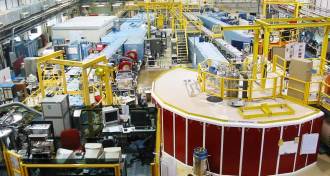 Physics
PhysicsPhysicists seek neutron lifetime’s secret
Updated experiments hope to resolve neutron lifetime discrepancy.
-
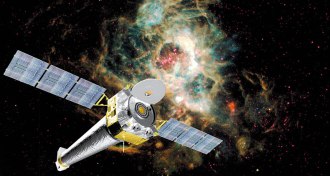 Physics
PhysicsPossible sign of dark matter shows up again
Excess of X-rays could indicate decaying sterile neutrinos.
-
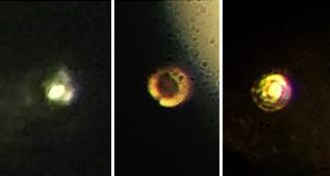 Physics
PhysicsNew claim staked for metallic hydrogen
Scientists report transforming hydrogen into a metal at high pressure, but some experts dispute the claim.
-
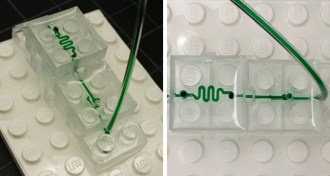 Tech
TechLegos inspire versatile fluid-filled devices
Tiny devices shuttle fluid around using reconfigurable Lego-like bricks.
-
 Physics
PhysicsConstruction of tiny, fluid-filled devices inspired by Legos
Tiny devices shuttle fluid around using reconfigurable Lego-like bricks.
-
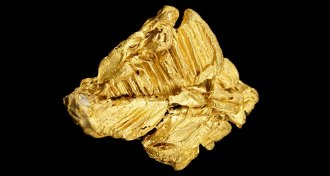 Physics
PhysicsChemists strike gold, solve mystery about precious metal’s properties
A longstanding puzzle about gold’s properties has been solved with more complex theoretical calculations.
-
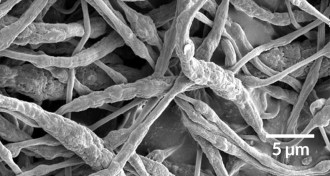 Materials Science
Materials ScienceNew ‘smart’ fibers curb fires in lithium-ion batteries
To stifle battery fires, scientists create component with heat-release flame retardant.
-
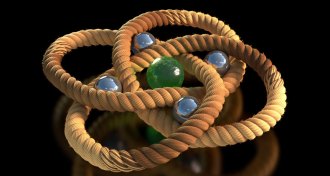 Chemistry
ChemistryNew molecular knot is most complex yet
The knot is woven from 192 atoms of carbon, hydrogen, oxygen and nitrogen and forms a triple braid with eight crossing points.
By Meghan Rosen -
 Paleontology
PaleontologyReaders weigh in on dinos, dark matter and more
Ancient bird calls, the search for dark matter and more in reader feedback.
-
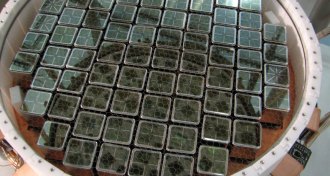 Particle Physics
Particle PhysicsDark matter still missing
The XENON100 experiment found no evidence of an annually varying dark matter signal.
-
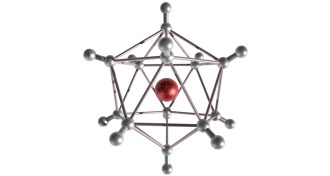 Physics
PhysicsNew form of hydrogen created
Scientists have created negatively charged clusters of hydrogen for the first time.
-
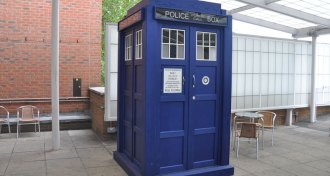 Physics
Physics‘Time Travel’ tours a fascinating fiction
James Gleick’s entertaining book Time Travel focuses more on fantasy than real science.